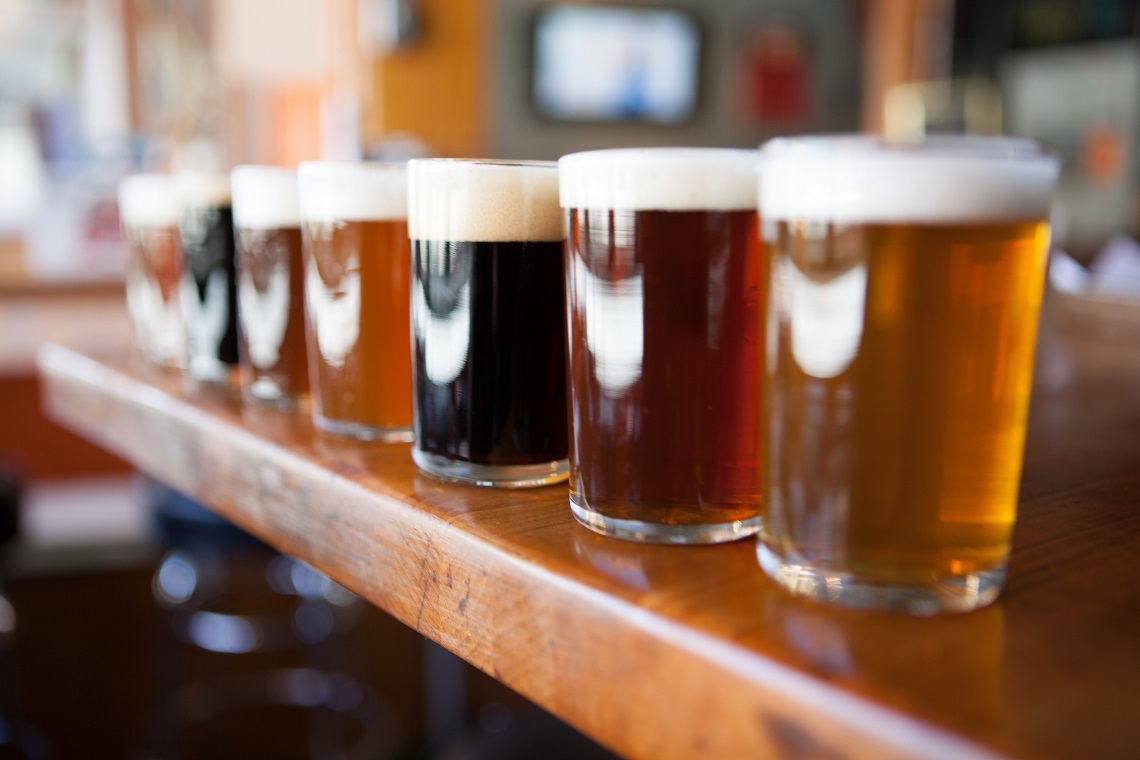The Queensland Government has revealed details of its craft beer strategy, which it has developed alongside the industry to help the independent craft brewing sector to fully realise its potential in the state.
The objective of the Queensland Craft Beer Strategy (QCBS) is to “drive the continued economic development of an independent craft brewing industry, that will generate jobs, contribute to Queensland’s regional economic growth and provide opportunities to access new markets”.
The Queensland Craft Beer Strategy (QCBS) identifies three key priorities that support the sector to develop its capability and capacity to access new markets and increase economic contribution.
Speaking about the strategy, Queensland Premier Annastacia Palaszczuk said: “Within Queensland’s manufacturing sector, independent craft brewing is emerging as a fast-growing industry. The independent craft brewing scene in Queensland is young and dynamic, with significant potential and scope to expand locally, interstate and internationally. Our local craft brewers have already established a reputation for award-winning quality and brewing techniques, with multiple accolades awarded to our brewers.
“The Queensland Craft Brewing Strategy has been developed by my government in consultation with industry. We are committed to partnering with this niche and progressive industry to drive ongoing growth across the state, while acknowledging that the strategy will be delivered within the framework of the Government’s policy on the responsible consumption of alcohol.”
The QCBS sets out three key priorities and nine corresponding actions that will support the state’s craft beer industry.
Priority One is ‘Investing in People and Infrastructure’, with the strategy stating: “Investment is key to driving long-term improvements in competitiveness and in creating opportunities for the industry to invest in product quality, skills and supply chain development”.
This priority has three actions against it, the first is to investigate establishing a ‘brewlab’ facility in Queensland by 2020. The brewlab will, subject to a successful business case, provide an experienced brewer to advise fellow brewers and deliver up-to-date practical and theoretical brewing skills. It will also create an environment which would enable brewers to develop new products and give access to consumers testing prior to going into production.
Action Two will see the Government work with TAFE Queensland to develop a course for craft brewers in 2019. The strategy suggests that the course could be complemented by the brewlab, enabling brewing students to obtain hands-on experience in brewing techniques.
Action Three aims to enhance supply chains for craft brewers by building regional craft brewing networks, local partnerships and relationships with the agricultural sector to mutually benefit both craft brewers and growers.
The strategy’s Priority Two is ‘Improving Access to Markets’. The strategy says: “Craft brewers generally produce low volumes of beer and typically reach the consumer by selling directly to them from their own premises (such as a brewpub). Given the large capital requirements and relatively low economies of scale, craft brewers are producing a wide variety of quality, premium products but at a higher cost than mass-produced beers.
“Craft breweries are expected to continue to derive the greatest share of their revenues from the local market around their brewery. This is consistent with keg sales and the assumption that a large volume of their sales is sourced from ‘over the counter’ sales. However, consultation found that craft brewers see a large opportunity to diversify their sales base and enter new markets.”
The strategy’s Action Four supports this Priority by increasing export opportunities for Queensland craft beer by: using the Queensland Government’s trade networks to build relationships in overseas markets; supporting craft brewers to access export-ready programs; connecting export-ready Queensland craft brewers to major international trade shows and events designed to promote Australia, such as G ’Day USA and Australia Week in China.
Action Five will support craft brewers’ access to new supply opportunities in Queensland by establishing buying arrangements that “prioritise Queensland food and beverages and promoting ‘Buy Queensland first’ within and outside government”.
Action Six recognises the huge opportunities that has arisen around the country through tourism. What was seen in the wine industry during the 1970s and 1980s in terms of a tourism boom has the potential to happen in craft beer. So as well as developing craft breweries as tourist attractions, the strategy aims to promote the tourism opportunities for craft brewing by encouraging craft brewers to register with regional tourism organisations and the Australian Tourism Data Warehouse.
The final Priority is “Appropriate Regulation and Planning” with Actions to ‘improve the regulatory environment for independent brewers’, ‘develop a statewide series of workshops and supporting information packs and guides’ and finally to ‘make representations to the Commonwealth Government in support of Queensland craft brewers receiving further excise relief’ and to ‘introduce a program to assist independent craft brewers to manage their excise obligations’.
Queensland’s share of the craft beer market has grown nine per cent in the last six years and the state’s Government is hopeful this strategy will help boost that rate of growth and support this industry.
Cameron Dick, the Minister for State Development, Manufacturing, Infrastructure and Planning said: “The QCBS will help ensure our independent craft brewing industry can keep delivering jobs for Queensland, while contributing to regional economic growth and accelerating opportunities in domestic and overseas markets.”

